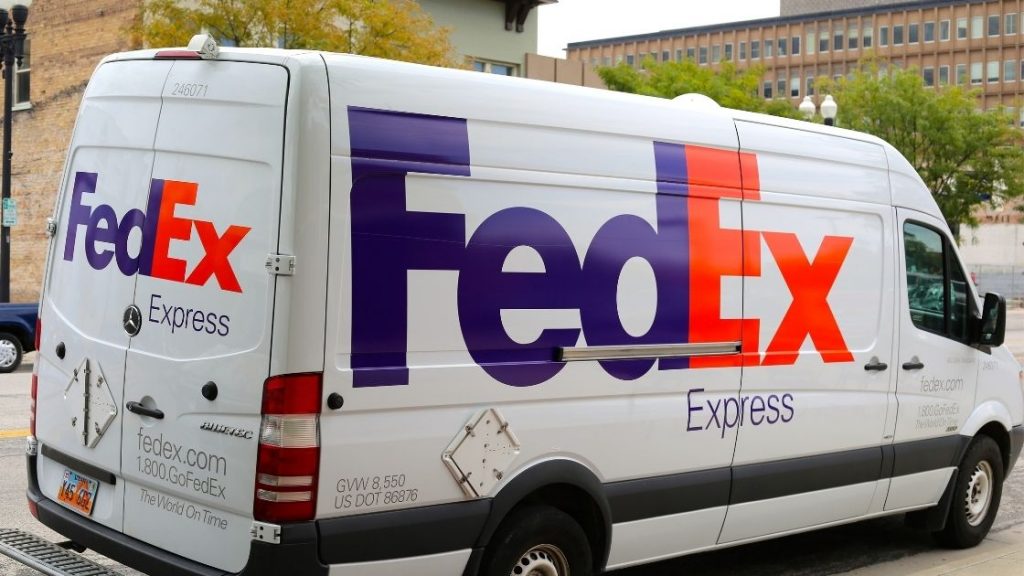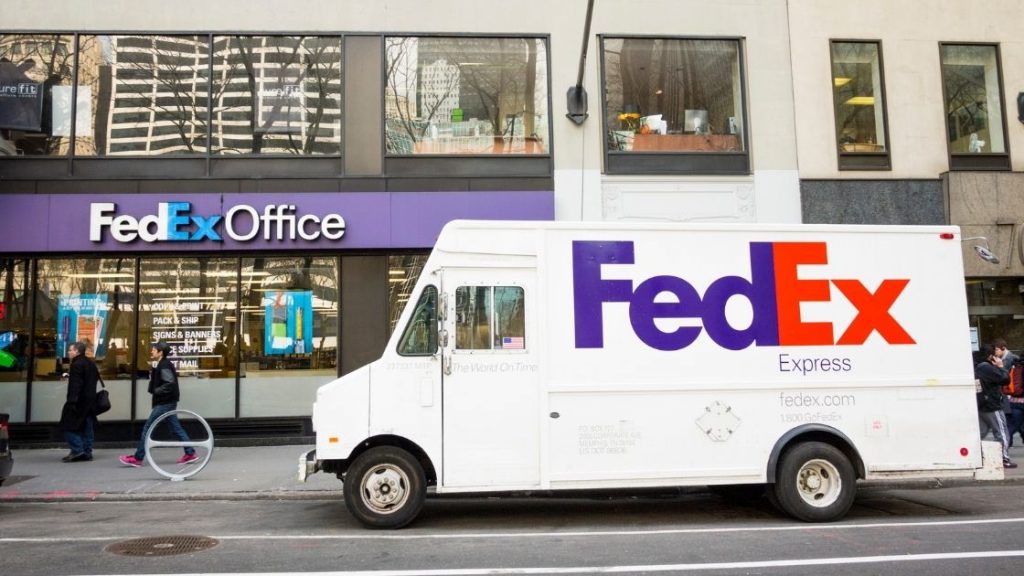If you are interested in starting a transportation business with just a single van but don’t know where to begin, you are in the right place.
In this article, I will cover 7 essential steps to setting up your transportation business.
Here’s a preview of what we’ll cover (of course, if you want to jump ahead to any of the individual steps, just click on the appropriate hyperlink below).
- Step 1: Figure Out What Type of Transportation Business You Want
- Step 2: Establish Your Transportation Business
- Step 3: Create a Business Plan For Your Transportation Business
- Step 4: Open Up a Business Checking Account
- Step 5: Obtain Funding
- Step 6: Obtain Licenses, Permits and Insurance
- Step 7: Market Your Transportation Business
Before we dive into the steps, I will cover some introductory questions you may have about the transportation business, including what it is (including the different types of transportation businesses), whether they are profitable, and how much they cost to start.
If you want to skip the introductory stuff and jump ahead to the 7 steps, click here.
This post may contain affiliate links. If you click on a link and complete a transaction, I may make a small commission at no extra cost to you.
The information contained in this post is for informational purposes only. It is not a recommendation to buy or invest, and it is not financial, investment, legal, or tax advice. You should seek the advice of a qualified professional before making any investment or other decisions relating to the topics covered by this article.
What is a Transportation Business (And Can I Start Small)?
A transportation business, otherwise known as a common carrier business in the U.S., is a business that delivers goods or possessions (freight) or people from one location to another for a fee.
You may be asking if it’s even possible to have a transportation business with a single van.
The answer is a resounding yes!
In fact, many large transportation businesses today started off small. An ambitious driver or entrepreneur decided to take the plunge and bought (or leased) their first van and began making deliveries. There are plenty of transportation companies which grew from humble beginnings to controlling dozens or even hundreds of vehicles.
Not just in transportation, but in most businesses, people start small and build up their companies. They gradually expand as they gain more experience and capital. It’s a tried and true formula for success.
As mentioned above, there are two ways you can start a transportation business: (i) transporting goods or (ii) transporting people. If you are going to be delivering goods, you will need to get a cargo van. If you are going to be transporting people, you should get a passenger van.
On that note, let’s turn to the topic of vans.
What Type of Van Should I Get For My Transportation Company?
Cargo Vans

Cargo vans are perfect vehicles to transport goods around urban centers. They are easy to drive, easy to park, and can fit a fair amount of cargo. They can also be ideal for small moving jobs. If you want to start off small with a single van, it’s hard to go wrong with a reliable cargo van.
How Much Do Cargo Vans Cost?
According to Truecar, new cargo vans run between $25,000-$35,000. Source
As you can imagine, buying a used cargo van is going to save you a lot of money. I looked at used cargo vans on Edmunds and found ones starting as low as $2,500 (although I also saw some that ran well over $50,000 – for almost-new Mercedes cargo vans).
Passenger Vans

Passenger vans share many of the same characteristics of cargo vans (similar in price, size, drivability, etc.), but they come with several rows of seats, which allow you to transport people in comfort. You see passenger vans often operating in group taxi or bus charter services.
Passenger vans are common for “shared ride” passengers who are going to (or coming home from) the airport. These vans drive groups of unrelated people who are going in the same general direction. Because you ride with a bunch of other people, you often wind up paying less than if you took a private taxi or Uber.
How Much Do Passenger Vans Cost?
According to Truecar, new passenger vans run between $28,000-$43,000. Source
Just like with cargo vans, buying a used passenger van is going to be much cheaper. I looked at used passenger vans on Edmunds and found ones starting slightly under $2,000 (although they can run well over $50,000).
How Much Does it Cost to Start a Transportation Business with One Van?
Starting a transportation company can be expensive (even if you start with one van), but it doesn’t have to be. We’ll show you how you can reduce your starting costs later on in the article.
As you can imagine, the biggest expense in starting your transportation business is going to be the cost of your van. Now we already covered how much your van is likely going to cost, so we won’t cover that again.
Basically, how much you spend is going to depend on the type of truck you get. Things that will affect price will be the van’s brand, age, condition, and mileage.
How to Lower Your Starting Costs:
Unless you have a ton of money lying around, you will probably need a loan to buy your van. Fortunately, there are plenty of financing options. Generally speaking, the availability and terms of your financing will depend on your income level, stability, and credit history.
You can also lease your van.
This strategy may be the cheapest way to get started. You can often lease your van for a smaller down payment and lower monthly payments than if you buy. Of course, if you buy a really low-cost used vehicle, that may wind up being far cheaper than leasing a new van.
Leasing allows you to lower your start-up costs, but it also gives you the ability to expand more rapidly. That’s because each new vehicle you get won’t require as much money as buying will. Also, in most cases, you may also have fewer maintenance and repair responsibilities if you lease vs. if you buy.
Other Expenses
Although obtaining your van is likely going to be your biggest upfront expense, there are other costs as well. You will also need to spend some money on equipment, accessories, licenses, insurance, marketing, etc.
They will be a modest expense when compared to the cost of acquiring your van, but they can still cost hundreds of dollars or more.
Is a Transportation Business Profitable?
A van business can be profitable. The average owner-operator of a van business in the U.S. makes around $98,660 per year, according to Ziprecruiter. This is almost double the national median income.
Of course, in business, nothing is guaranteed.
The actual amount you make may vary depending on where you operate, what type of transportation business you are in (cargo or passenger), how much you charge, how well you manage your expenses, how skilled you are at marketing, and a host of other factors.
Ok, now that we’ve covered the introductory stuff, let’s dive into the details on how you can start your own transportation business with just one van.
Step 1: Figure Out What Type of Transportation Business You Want
As you can imagine, the key decision is whether you want to focus on transporting cargo or passengers.
Each has its pros and cons, but that one decision is going to affect the type of vehicle you get, the type of marketing you will need to do, and a host of other factors that will impact your business, so you need to spend some time and energy thinking about this.
If you need some inspiration, here are some popular business ideas for cargo vans and passenger vans. Explore them and select a strategy that resonates with you.
Ideas to Make Money with a Cargo Van
Deliver Food
No shortage of work here. You can deliver food for restaurants, catering companies, and any other type of food company. Of course, Door Dash, Uber Eats, Instacart and many others can provide you a steady flow of food delivery jobs.
You can even buy a bread route and operate one for a nice profit. What is a bread route? These are routes where you get a dedicated territory from a bread company, like Arnold’s or Pepperidge Farm and get a commission for each sale you make to stores in that territory. You will be using your cargo van to make the deliveries, of course.
If you want to learn more about this strategy, check out my article on how to buy a bread route.
Deliver Retail Goods
There are plenty of companies, and manufacturers, that need deliveries made all of the time. Whether it’s supplies, medical equipment, or appliances, you can certainly fill that need with your cargo van. Sites like GoShare can connect you to people or businesses that may need these types of deliveries.
Deliver Furniture (Or Offer Moving Services)
As I mentioned earlier, you can also offer to move items for companies or individuals. In the industry, it’s known as a “Man with a Van.” Whether its helping a person move out of their small apartment, or helping a small office relocate, your cargo van may be the perfect choice for these types of jobs. You can get these types of jobs on sites like Taskrabbit, Thumbtack, and similar sites.
Deliver Flowers
I used to own a florist, so I understand the need for good delivery drivers.
If you offer a safe and reliable service at a fair price, you can definitely satisfy that need. Start by just calling local florists in your area. The great thing is that cargo vans have the perfect amount of space to handle even the largest flower delivery orders (which is really important on days like Valentine’s day or Mother’s Day when the volume of orders is through the roof).
Rent Out Your Cargo Van
On slow days, you can even rent out your cargo van to movers or other companies or individuals who may need it. Not a bad way to make some nice passive income with your cargo van.
If you want to learn more about how to rent out your cargo van (including links to specific sites you can use), check out my full article on How to Rent Out Your Truck For Profit.
E-Commerce Driver
You can take advantage of the booming e-commerce wave by becoming a driver for companies like Amazon. Cargo vans are perfect for this task. If you want to learn more, check out Amazon Flex. They aren’t available in all cities, but there is pretty good coverage nationwide already.
Mobile Billboards
A far more passive way to make money with you cargo van is with mobile billboards. It’s a pretty cool strategy and I wrote an entire article on how to get started. Check it out here.
Mobile Car Wash
Another great business opportunity is starting a mobile car wash business. Once you have your cargo van, the rest of the materials and equipment is pretty cheap. If you are interested in this option, check out my article on how to start a mobile car wash business for less than $250.
Gutter Cleaning Services
Finally, you can start a gutter cleaning business with your cargo van because it can carry the very tall ladder (on the top of the van) that is required to operate this type of business. It can also easily fit all of the equipment needed for the business (which can be bought for less than $1,000, including the ladder).
If you want to learn how to start a low-cost gutter cleaning business, check out my article on the topic here.
Ideas to Make Money with a Passenger Van
Offer a Car Service
This is obviously the most common business to run with a passenger van. As I mentioned earlier, you can offer shared ride services (taxi-like service where you transport people going in the same general direction), charter van services (where a group of people going on a trip, for example, charter your van for that trip), shuttle van services (where you transport people back and forth along a route), and a bunch of variations on these types of passenger delivery services.
Rent Out Your Passenger Van
This is a cool strategy that is made possible by sites like Turo.
Turo is the like the Airbnb of car rentals. Basically, using Turo, you can rent out your passenger van to people who are looking for one. To see how much money you can make on Turo with a passenger van, check out their Carculator.
When I looked up a 2018 Ford Transit Van, it showed that I could earn over a $1,000 a month! Not bad considering you can probably finance one for monthly payments that will be far less than that. It can be a cool little arbitrage.
Step 2: Establish Your Transportation Business
Select Your Business Name and Logo
The first step in establishing your transportation business is selecting a name and logo that you like. You want to make sure your name and logo are original to you and are not going to infringe someone else’s intellectual property. If you are unsure, you can check the USPTO’s trademark search tool as a starting point.
If you need inspiration or are looking for some great strategies and tips on how to select the right name and logo for your business, check out my full article on the topic: How to Choose a Company Name and Logo [16 Key Strategies and Tips].
Create a Website For Your Transportation Business
Don’t neglect this step. Your business needs a website, period. Especially if you are going to be offering services to the general public (e.g., offering local moving services, etc.)
Your website doesn’t have to be incredibly fancy or cost a lot of money to set up. There are a lot of resources available to help you with this.
In fact, Google allows you to build your first business profile website for free.
List Your Trucking Business So Customers Can Find You
It is also important to get your fledgling business on Google. You can do this by listing it on Google My Business. This way, people who are searching for a trucking business in your local area can find you.
If you want to learn more about how to do this, check out this tutorial from Google.
Set Up Your Business Entity
You may want to set up a business entity like an LLC, corporation, or partnership for your transportation company. Why do this? In most cases, setting up a business entity can help shield some of your assets held outside the business entity if there is a claim against the business.
For a handy table comparing the different types of business entities, check out my ultimate guide to starting a business.
As far as the set up goes, there are plenty of online companies that can set up your LLC for you.
I like Northwest because they can get you up and running quickly and easily. They are also one of the most affordable options that I was able to find that still offered great customer service ($39 as of the date of this article).
According to their website, they are the only national registered agent service that lets you use their office address so you don’t have to use your own. That’s a killer privacy advantage.
Definitely worth checking out.

Step 3: Create a Business Plan For Your Transportation Business
A business plan is essentially a roadmap for your trucking business.
It organizes your thoughts relating to your business into an actionable plan. Some things to include in your company’s business plan are budgeting, identifying your target market and competition, marketing strategy, pricing strategy, operational plans, and growth projections.
Don’t know how to get started? The Small Business Administration has a great tool to help you write your business plan.
Step 4: Open Up a Business Checking Account
You should open a dedicated checking account in the name of your transportation business. It will give your business credibility, help keep things organized and tidy at tax time, and keep personal and business expenses separate.
If you don’t know where to get started, check out Novo.
They are perfect for new small businesses because they offer no monthly fees or minimum balances, and give you unlimited ATM fee refunds. On top of that, they give you access to tons of other free perks, like major discounts on places like Stripe, Quickbooks and Google Ads.
In my opinion, they are one of the best options in the market.

Step 5: Obtain Funding

As we covered already, starting a transportation business can be costly, especially if you plan on buying a new van.
Fortunately, as we discussed, there are a lot of financing options available (as well as leasing options).
That being said, you will still need some money to get started.
Want some ideas on how to get that seed money? Check out these options:
- Personal savings. You will often need some skin in the game before lenders will work with you, so having some personal savings is important.
- Credit Cards. Due to high interest rates, credit cards are probably not an ideal choice, but they can serve in a pinch.
- Friends and family. Although these people may be willing to lending you money, you have to weigh that against the risk of souring your relationship with them if things go sideways.
- Banks. Banks are a traditional source of funding for new businesses, but they will often conduct extensive due diligence and underwriting before lending to a brand new enterprise.
- Online Funding. This includes includes getting a loan using peer-to-peer lending, funding through kickstarter campaigns, using online lenders, etc.
Step 6: Obtain Licenses, Permits and Insurance
One of the nice things about starting a transportation company with a van (as opposed to a semi-truck, for example) is that you don’t need a commercial driver’s license (CDL). But, depending on the type of business you operate, you’ll need to get licenses, permits and may need special types of insurance.
If you are going to be transporting passengers, you’ll likely need to get a license or permit to do so. What you need may depend on whether you are transporting passengers across state lines, or your specific state’s requirements. For example, you may need an operator’s license if you are going to be offering taxi services.
Similarly, if you are transporting goods, there may be permits and licenses needed, depending on the location and scope of your activities. Some states require licensing if you are offering moving services, for example. Again, check your state and local laws to find out what may apply.
If all of this sounds a bit daunting, you can (and should) hire a lawyer to help you navigate through this.
As a general rule, in most cases, you will at least need to get a general business license (which is usually not too expensive or difficult to obtain) and some form of commercial vehicle insurance.
Step 7: Market Your Transportation Business
A good marketing plan is critical to your business’ success.
After all, if no one knows that your business exists, you may as well pack it up because no one will be using you. So what are some of the best ways to spread awareness and keep the customers coming in?
Of course, online marketing is one of the most important channels.
So how do you crack that nut? For online marketing, you can do the following:
- Set up a Google My Business. We covered this a little already, but it’s really important. You need this so that people looking for your type of business can find you. You want to encourage people to leave good reviews there for you if they like your business. Research has found a strong relationship between the number of online reviews a business and the revenue that it generates.
- Get a great website that draws traffic to your business. You can use the free website offered by Google that we mentioned earlier, but if you really want to draw traffic (and customers) to your website, you may want to hire an online marketing expert to help you optimize your website for traffic and leads.
- Get on Yelp for business and let your customers find you. They are an extremely well-known brand, and many people look there when searching for local businesses.
- Use Social Media Channels. In addition to advertising on Yelp, you can buy online ads from other online and social media outlets (Facebook, etc.)
If you want to go old school, you can also advertise in your local newspapers, circulars, or through direct mail, etc.
Of course, don’t reinvent the wheel here. See what your competitors are doing when it comes to marketing their products or services and learn from them. Also see how they are pricing their services and take your cues from them.
Ultimately, you want to experiment with various marketing strategies – you may be surprised at what works best.
Conclusion
So there you have it – 7 steps to starting a successful transportation business with just one van.
Hope this has been helpful. If you want to learn how to make passive income in the transportation business, check out my article on trucking investing for passive income. We cover three different ways to do this, with some pretty unconventional ideas. I think you will find it an interesting read.
For the ultimate guide to transportation business ideas, check out article on the topic here. I discuss over 30 business ideas that you can start in the transportation industry (with helpful info and tips on how to begin). We cover businesses you can start with semi-trucks, box trucks, dump trucks, cargo and passenger vans, pick-up trucks and even regular old cars. So whatever your budget and experience, there will be ideas that can work for you.
For more targeted articles on other businesses in the trucking industry, check out my articles on how to start a box truck business, how to start a dump truck business and how to start a dumpster rental business.

